|
|
|
|
Nau mai haere mai – welcome to this week’s newsletter.
To borrow a phrase from politics, a week is a long time in lockdown. With case numbers still growing in the Auckland Delta outbreak, transmission detected in Waikato, and unexplained infections turning up in hospitals, New Zealand has entered a new phase of the pandemic and its response to it.
This was confirmed when the government announced on Monday an easing of Auckland’s level 3 restrictions, despite the ongoing outbreak. With yesterday’s announcement that a vaccine certificate would be in operation by November, it’s clear the strategy has moved from elimination (however that is defined) to suppression, based on a combination of ongoing restrictions and higher vaccination rates.
As University of Auckland epidemiologist Rod Jackson argues, greater vaccination urgency is critical to the success of this new approach, including making it mandatory for some, which the majority of already-jabbed New Zealanders will support.
Meanwhile, University of Canterbury mathematician and modeller Michael Plank points out that New Zealand enjoys one obvious advantage over the many counties to have experienced the ravages of uncontrolled outbreaks: everyone over the age of 12 has now had the opportunity to have at least the first dose of the vaccine.
“While vaccination rates are not high enough, they are still helping a lot,” he writes. Now it’s everyone’s job to get them higher.
Until next time, ngā mihi nui ki a koutou katoa.
|

|
Finlay Macdonald
New Zealand Senior Editor & NZ Editor: Politics, Business + Arts
|
|
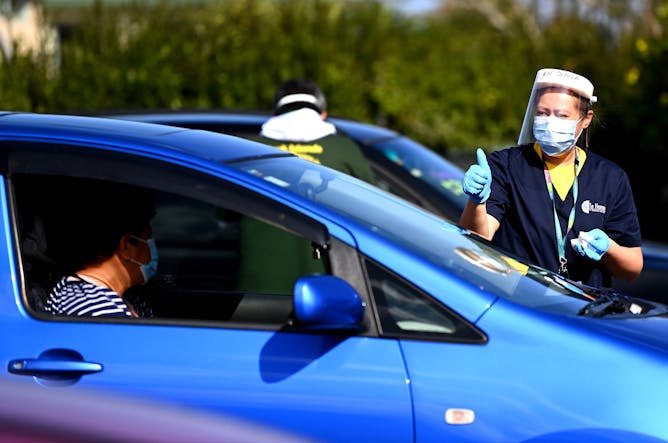
GettyImages
Michael Plank, University of Canterbury
Most countries experienced serious outbreaks of COVID before widespread vaccination was available. Will it make the difference as New Zealand walks a narrow path towards opening up?
|

shutterstock
Candice Harris, Auckland University of Technology; Jarrod Haar, Auckland University of Technology
Has COVID rendered concepts such as “work-life conflict” or “work-life balance” redundant?
Maybe we need new ways to describe and navigate the new pandemic reality.
|
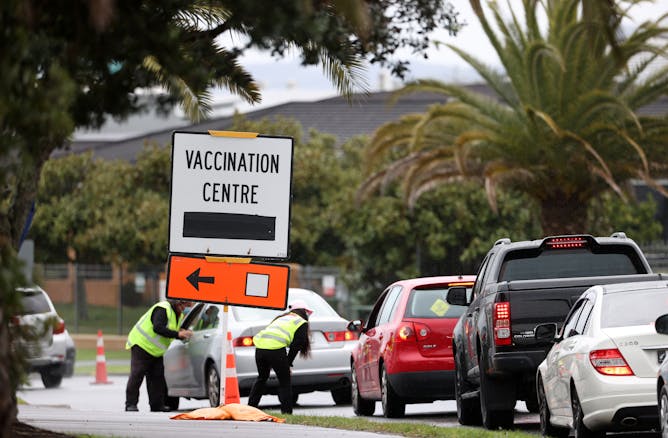
GettyImages
Rod Jackson, University of Auckland
With the government decision on alert levels due today, it’s clear a more radical approach to vaccination is needed — including restrictions for eligible but unvaccinated people.
|
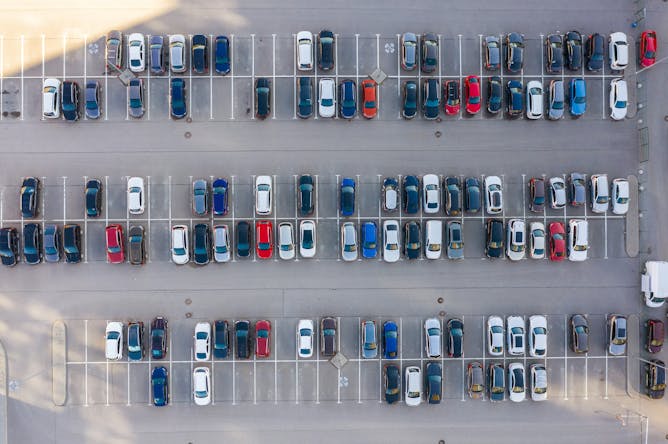
Shutterstock
Timothy Welch, University of Auckland
A single open-air car park takes up land that could potentially house hundreds of people.
|

Shutterstock/Andrey Armyagov
João Marcos Azevedo Correia de Souza, MetService — Te Ratonga Tirorangi; Amandine Schaeffer, UNSW; Jonathan Gardner, Te Herenga Waka — Victoria University of Wellington; Robert Smith
The oceans around New Zealand are warming faster in winter than in summer. During the winter of 2021, most coastal areas were warmer than usual, and this is likely to bring more storms during summer.
|
From our international editions
|

Filipa Henderson Sousa, Edinburgh Napier University; Peter Barlow, Edinburgh Napier University
Molnupiravir is showing promise for treating and controlling the spread of COVID-19.
| |
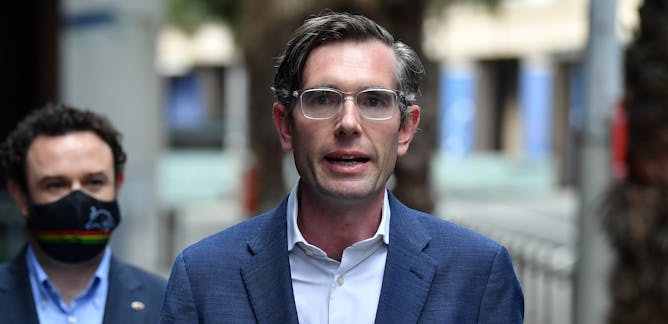
Gregory Melleuish, University of Wollongong
Perrottet’s conservative Catholicism has been much commented on, but it’s his economic background that likely gives a greater insight into the kind of premier he might be.
|
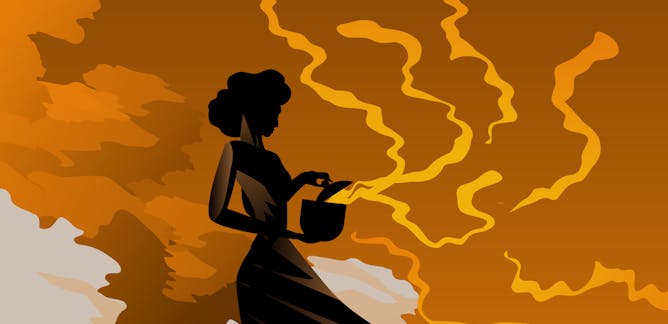
Ronen Palan, City, University of London
The latest instalment of leaks about the super-rich using offshore tax havens to hide their wealth has been published.
| |
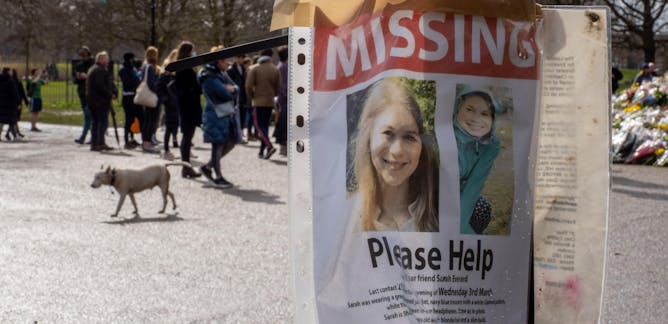
Tanya Beetham, Teesside University; Emma Turley, CQUniversity Australia; Lisa Lazard, The Open University; Lois Catrin Donnelly, University of Worcester; Lucy Thompson, Michigan State University
The government’s violence against women strategy fails to adequately address the reasons for women’s lack of safety.
|
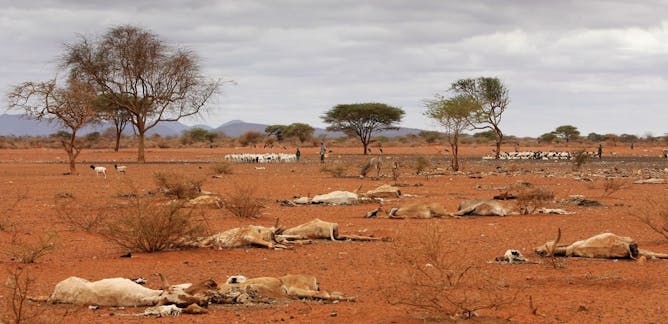
Chris Funk, University of California Santa Barbara
The next year appears likely to bring another sequence of La Niña-related droughts to eastern East Africa. The time to act is now or many will suffer.
| |
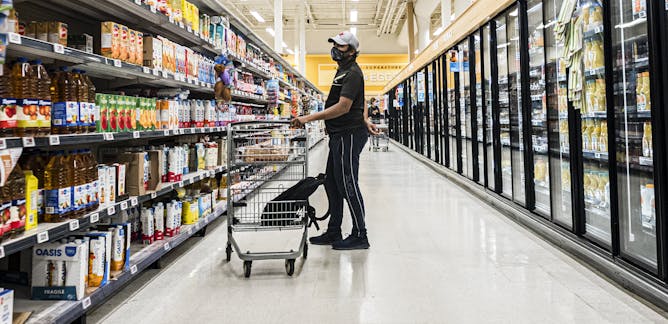
Maleeka Singh, University of Guelph; Lawrence Goodridge, University of Guelph; Maria G. Corradini, University of Guelph; Robert Hanner, University of Guelph; Steven Newmaster, University of Guelph
The risk of COVID-19 exposure from high-touch surfaces within grocery stores is low if physical distancing guidelines and recommended cleaning protocols are followed.
|

C. Michael White, University of Connecticut
The same dose of a drug can have varying degrees of effectiveness and safety depending on how well the liver can metabolize it.
| |
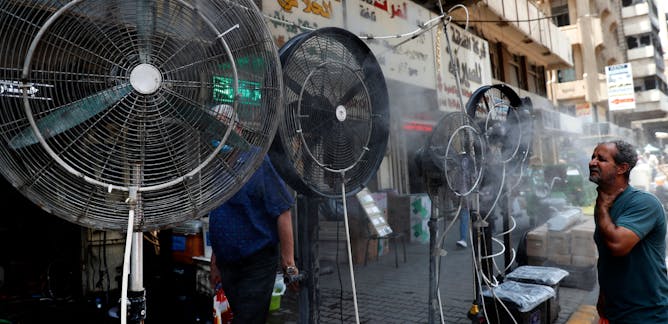
Cascade Tuholske, Columbia University; Chris Funk, University of California Santa Barbara; Kathryn Grace, University of Minnesota
Hot, humid population centers are becoming epicenters of heat risk as climate changes worsens. It’s calling into question the conventional wisdom that urbanization uniformly reduces poverty.
|
|
|
| |
| |
| |
| |
| |
| |
|
|
|
|
|
|
|